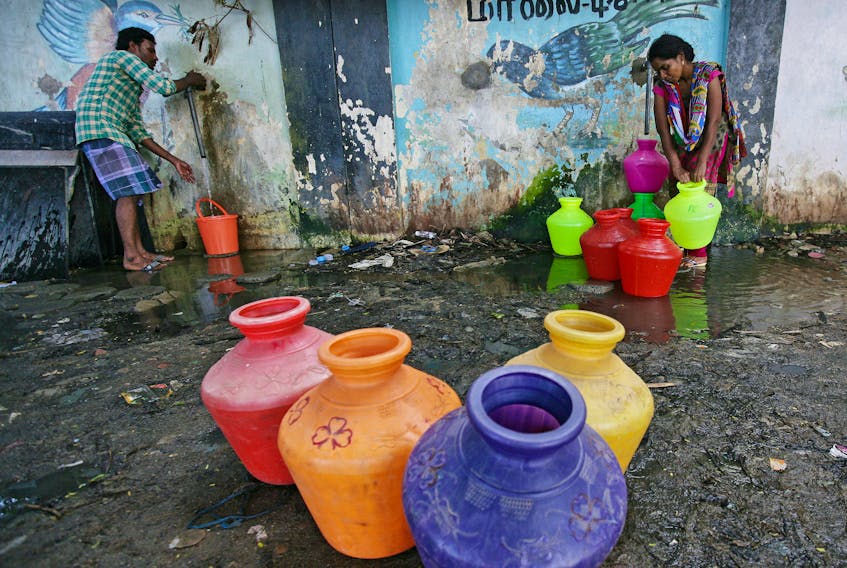In Chennai, India, nine million people have effectively run out of water.
The faucets have run dry, official truck water supplies have become unreliable, and public standpipes operate irregularly, and when they do operate, sometimes produce only a trickle. People wait hours for water for daily use.
If traditional monsoon rains don’t come to ease the water shortage (they haven’t for the last two years), the water shortages in Chennai are expected to spread to Hyderabad, Delhi and Bangalore, meaning 60 million people will be facing critical water shortages.
In Chennai, surface reservoirs have dropped to levels not seen in 70 years. Meanwhile, without surface water, Chennai has used — and partially exhausted — water available from underground aquifers.
Meanwhile, on Sunday in Guadalajara, Mexico, where June temperatures average 31 degrees, a freak storm dropped a full metre of hail, paralyzing the city, plugging drainage systems and causing flooding.
Is all of this the crisis of climate change? Well yes — and no.
The takeaway is that the climate is doing exactly what climate scientists warned about years ago: weather is becoming more erratic and more extreme.
A year ago, all the water talk was about South Africa’s Day Zero, when Cape Town was expected to run out of water within days — it didn’t, in part because of a return of some normalcy to rainfall, and also to conservation efforts, including significant reductions in water use by the city’s residents, and a 30 per cent cut to agricultural water use.
So what’s the bottom line?
The takeaway is that the climate is doing exactly what climate scientists warned about years ago: weather is becoming more erratic and more extreme.
Certainly, not all extreme weather stories are necessarily climate change stories; some are population stories, some are overuse of resources stories, and some are just the same weather extremes that have existed for as long as there has been weather — in other words, forever.
There’s also the media’s awareness of the issue, and therefore a willingness to connect dots that don’t always have clear lines between them.
But it bears repeating that the industries whose business it is to do things like insure against calamity have been seeing a marked increase in climate costs; the insurance industry has seen US$415 billion in payouts related to climate in the past three years, and is forecasting annual damage numbers of more than US$400 billion a year by 2030.
Insurance is not an isolated thing: insurance companies re-insure their risk with even-larger insurance companies, meaning that major losses get spread across the entire insurance pool. To put that in flat terms, this year’s insurance premiums have to cover losses. If the three-fold increase in claims appears, then premiums will have to increase three-fold as well.
And that may simply make insurance unaffordable for a broad swathe of potential customers.
If nothing else, that may finally get our attention.









